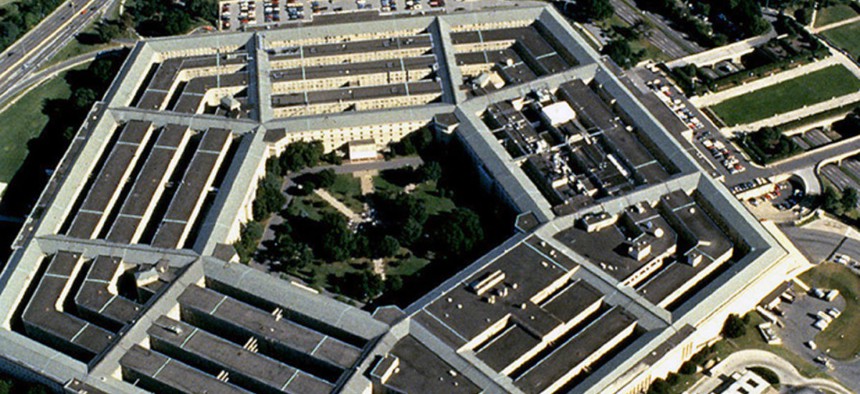
Defense Department file photo
Proposed FOIA Changes Could Shield Pentagon Documents on Torture, Contractor Abuse
Transparency groups seek to head off Pentagon bid to narrow transparency law.
Fourteen transparency, anti-government waste and media groups have combined to urge Congress to reject a Defense Department proposal to add exemptions to the Freedom of Information Act, warning that such a change would deny public access to documents on volatile departmental issues including prisoner torture, sexual assault and contractor misbehavior.
In an April 7 letter to the lawmakers on the House and Senate Armed Services panels, the alliance that includes the nonprofit Project on Government Oversight objected to language proposed in the Pentagon’s annual draft of changes it would like for the coming National Defense Authorization Act. The passage asserts a right of “Nondisclosure of information: critical infrastructure; military tactics, techniques, and procedures.”
That would allow the Pentagon to deny documents requested under FOIA that contain unclassified information concerning military operations. The proposal also would expand the secretary of State’s power to exempt unclassified but “sensitive information” from foreign governments from FOIA.
Overall, the new language “would undermine the FOIA by returning to an overly broad interpretation of exemption 2 of FOIA, and by creating an unnecessary secrecy provision at odds with FOIA’s goal of transparency,” the groups wrote.
They argued that the Defense Department is seeking to mimic the Intelligence Community’s exemptions to FOIA designed to protect sources and methods, an exemption, they argued, that FOIA already permits for properly classified information. The groups also asserted that a 2011 Supreme Court decision prevents agencies from over-withholding records under an exemption for documents that are “related solely to the internal personnel rules and practices of an agency.”
Any tightening of FOIA exemptions, the groups argued, should be done as part of the FOIA Improvement Act, versions of which have cleared both chambers of Congress.
The Pentagon has expressed concerns about giving potential adversaries advance knowledge of this information, and had proposed the same FOIA changes, unsuccessfully, for last year’s NDAA.
The department, in its 2016 FOIA compliance report, cited progress in streamlining FOIA decision-making, saying “DOD components remain vigilant regarding promoting and attending FOIA training to ensure that DoD has a vanguard of strong FOIA professionals.” But Defense’s chief FOIA officer also complained that some components are “overwhelmed by one or two requesters who try to monopolize the system by filing a large number of requests or submitting disparate requests in groups which require a great deal of administrative time to adjudicate.”







